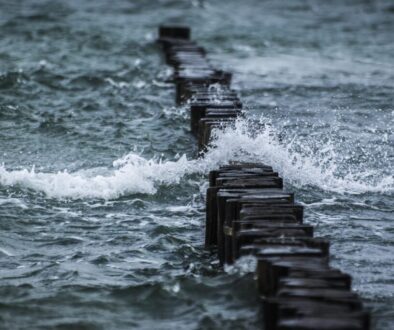Under the headline “Agency secretly removed rule meant to protect marine environment,” TV2 News reported on Sunday, March 17th, that the Danish Fisheries Agency has ignored illegal mussel fishing in the Limfjord and subsequently legalised it retroactively. This was done through guidance that was only recently published on the agency’s website. LIFE Member FSK-PO (Danish Coastal Fishermen’s Association) believes this constitutes a serious failure not only towards local coastal fishermen in areas with motor restrictions, such as the Limfjord, Rødspættekassen in the North Sea and area 22 in the Baltic Sea, but also towards the marine environment and fish stocks on which fishermen depend.
The story, which can be read on TV2’s website, concerns the illegal mussel fishing in the Limfjord. TV2 documents that at least 11 out of 30 mussel vessels in the Limfjord have been using illegally large engines for years. According to regulations, it is only allowed to use an engine of 130 KW, but for several years, the ships have used larger engines. This allows for more efficient fishing with larger, heavier, and more gear.
Illegal fishing has led to unfair competition for fishermen using more environmentally friendly gear and has also led to constant disturbance of the seabed, increasing oxygen depletion in the Limfjord. This has a significant impact on the marine environment, akin to “picking strawberries with a backhoe,” as researcher Jørgen LS Hansen puts it.
But it gets even worse when it turns out that the Fisheries Agency not only failed to punish illegal fishing but also made it legal by interpreting the rules in a way that exceeds the boundaries of the law and with retroactive effect. This is contrary to legislation enacted by democratically elected politicians. Management experts therefore call it an abuse of power.
However, the problem is not limited to the Limfjord. The chairman of FSK-PO, Søren Jakobsen, told TV2 News, “There are several marine areas where restrictions on engine size have been introduced to avoid overfishing.” He also mentions the example of area 22 in the Baltic Sea, where there is a limit of 221 kW, and where authorities have also failed to enforce the law on engine size. This has had significant consequences for local fishermen, who have been able to observe vessels with engines that are far too large fishing, among other things, cod in the area, enabling them to catch large quantities in a short time, leaving the marine environment in poor condition. There was previous focus on engine power in 2020 when Weekendavisen published a major article, but unfortunately, it did not lead to any changes at that time.
LIFE and Danish member FSK-PO hope the Danish government will now take this matter very seriously.



